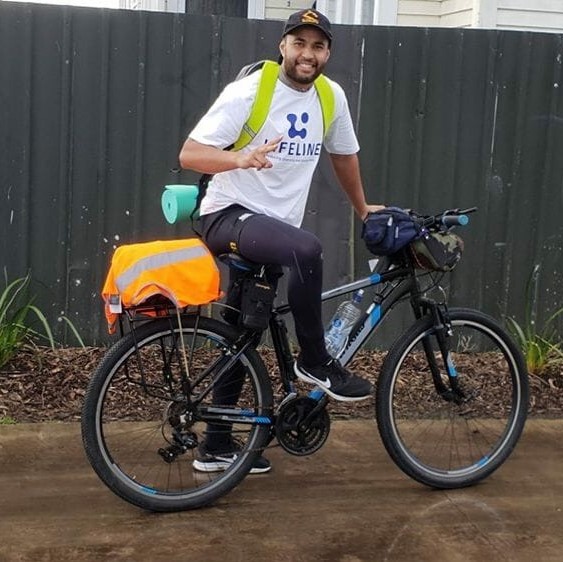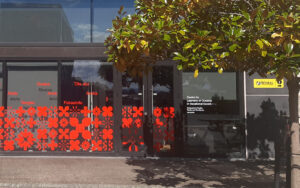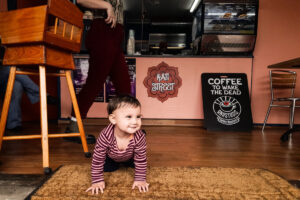North to south: Mental health awareness
Arikinui Mana and New Zealand comedian Mike King share their stories and their journeys to create awareness for mental health.
Arikinui Mana gave up his house, hobbies and his job to cycle the length of New Zealand and “do it rough”.
Mana, 27, has spent his whole life in Hamilton and being a keen rugby player, he loves his fitness.
He is part of the Ngati Porou tribe from the North Island’s East Coast.

Inspired by the rising number of suicides in New Zealand, Mana knew that he had to do something to help.
“My cousin committed suicide and people around me were telling stories about people they knew. I just felt like I had to do something,” he said.
“This is the way that I feel like I should do it. I feel that fitness and exercise combats depression.”
Although Mana isn’t a stranger to depression himself. He was at a low point about three years ago, he said. His negative lifestyle left him unable to cope.
“I was at the bottom of the Bombay Hills and I was ready to leave it all behind.”
Lifeline was his saviour, he said.
“I looked on the Internet and Googled lifeline. They helped me from there and talked me out of it.”
He will be cycling from Hamilton to Cape Reinga, but that’s when the real journey starts for him. Cape Reinga to Bluff. 2,178 kilometres. Just him and his bike, living it rough, sleeping in a tent.
His goal is to raise at least $5000 which he will give to Lifeline New Zealand.
Obviously being the winter and sleeping at campgrounds it will get very cold, but that’s all part of his challenge.
Just carrying with him a puncture repair kit, a one-man tent, a sleeping bag, gas cooker, solar powered battery charger and wet weather gear. As well as a few banners – he’s travelling as light as possible.
The trip should take two or three weeks. On his way down the country he will be stopping into communities and giving talks, telling his story.
“I’ll tell you the honest truth. I haven’t trained for this at all,” Mana said. The closest thing to training that he did was his rugby games.
“Also, I haven’t trained to fix my tyre. So, I had to learn that.”
Mana constantly expresses his passion for wanting to help others. He wants to make a difference in people’s lives and to help them overcome their depression.
“Everyone’s holding back from speaking up. We’ve got the highest rates of suicide in the world in teens. We’ve got one of the highest rates of men committing suicide in the world per 100,000 people.”
Men and Māori are highly represented in these figures. For both, the suicide rates are well above the national average.
“You’ve got to keep busy and keep exercising your body because that’s what your body is for. It pretty much eliminates depression from the get go. Even just ringing up a mate and saying, ‘Do you want to go for a ride?’ Or, ‘Do you want to go for a walk?’”
Mana is cycling down from Cape Reinga. He said that the weather is a bit off and on but he’s enjoying it. His plan was to leave there by July 13 and with his big journey in his sights he’s hoping to raise as much awareness for mental health as he can.
“So far leaving Hamilton was the best part because it was like my trip was confirmed.”
New Zealand comedian Mike King is also on the mental health awareness path.
King and his team rode scooters from Bluff to Cape Reinga in March. Travelling about 4200 kilometres over 25 days.
They visited almost 50 schools and 20 communities, sharing their stories.
King started The Key to Life Charitable Trust in 2013. This was after a judge had sentenced him to 200 hours community service for riding his Harley Davidson without a licence.
His first act of community service was speaking to students at Taipa Area School. Within a couple of months previous, five students had taken their lives.
Before arriving at the school King decided that he would lift everyone’s spirits by telling jokes.
“When I turned up at the school I soon worked out that telling jokes was not going to make these kids feel any better, so I started to talk about my past as a drug addict, an alcoholic, and someone who has suffered from self-esteem issues for most of my life,” King said.
“What happened then was the kids could see that I was prepared to take my mask off – to let them know that I was far from being perfect and in return the kids began to take off their masks off and started talking about the real problems they were dealing with in their own lives.”
Since then King has spoken to over 250,000 youth and 30,000 adults across New Zealand.
The Key to Life Charitable Trust’s focus is mainly kids. If you can get the message through to kids early enough and make sure they know that they aren’t alone then they are more likely to implement change in the future, King said.
“Mental illness affects everyone. It’s an unfussy disease. Race, colonisation or poverty has nothing to do with why our people are suffering from mental illness. Experts are all-to-willing to jump to conclusions as to why our people are suffering and the reason they do so is because it’s easier to put a label on something than it is to try and understand it. 95 percent of the people I talk to around the country are suffering from a lack of self-esteem.”
“Adults are all too quick to blame social media, Xbox, or even their kid’s friends as the reason for their child’s despondent behaviour.”
They may call their kids lazy or selfish but social media is a way that they can create a public profile for themselves without people seeing or knowing their insecurities.
“They are creating a facade around themselves that builds up their self-esteem. They use this method to build up their self-esteem because it’s not happening at home. Masks allow our kids to be whomever they want. They feel good.
King’s message is to talk to each other. Be open with people and help them when they need it. Be there to support them.
“If we can prevent the need for masks to be worn in the first place then we are lessening the need for our kids to look for shallow and futile methods with which to build self-esteem.”




